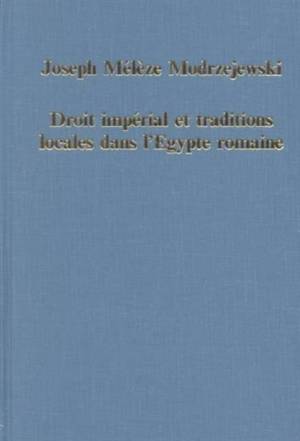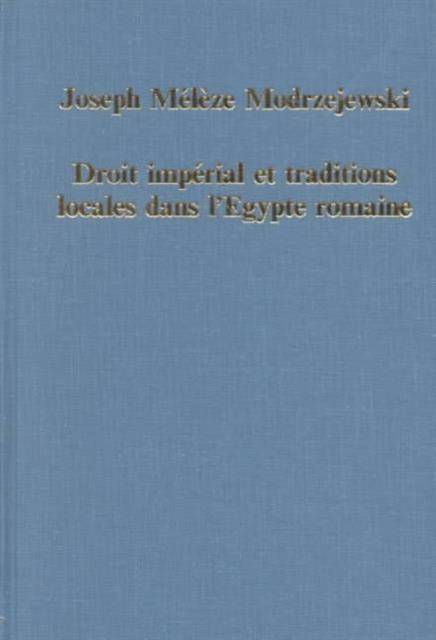
- Afhalen na 1 uur in een winkel met voorraad
- Gratis thuislevering in België vanaf € 30
- Ruim aanbod met 7 miljoen producten
- Afhalen na 1 uur in een winkel met voorraad
- Gratis thuislevering in België vanaf € 30
- Ruim aanbod met 7 miljoen producten
Zoeken
Droit Impérial Et Traditions Locales Dans l'Égypte Romaine
Joseph Mélèze-Modrzejewski
€ 132,95
+ 265 punten
Omschrijving
In the first centuries after the Roman occupation of Egypt the local laws and traditions of the Greek-speaking population were brought face to face with the demands and structures of the legal system of the Empire. The articles in this volume examine how the two interacted, and are based upon extensive research into the Greek papyri. The opening studies show how the Greek élite was accommodated by the conquerors and investigate the persistence of a number of local practices. In the second part, which centres upon the figure of the noted jurist Ulpian, Professor Mélèze-Modrzejewski looks at the impact of the Roman Empire, while the final articles attempt to explain how the legal traditions of the Hellenised East survived the general extension of Roman citizenship by Caracalla in 212 AD. Durant les premiers siècles qui ont suivi l'occupation romaine de l'Egypte, les lois et les traditions locales de la population hellénophone furent confrontés aux exigences et aux structures du système légal de l'empire. Les articles contenus dans ce volume en examinent l'internaction et sont basés de façon extensive sur le témoinage des papyrus grecs. Les premiers études montrent comment les conquérants furent conciliants vis-à -vis de l'élite grecque et examinent la persistance d'un certain nombre de pratiques provinciales. Dans la deuxième partie, qui est centrée sur l'illustre juriste Ulpien, le professeur Mélèze-Modrzejewski jette un regard sur l'impact de l'empire romain. Les dernières études tentent d'expliquer de quelle façon les traditions juridiques de l'Orient hellenise ont sevécu à l'extension générale de la citoyenneté romaine par Caracalla en 212 de notre ère.
Specificaties
Betrokkenen
- Auteur(s):
- Uitgeverij:
Inhoud
- Aantal bladzijden:
- 336
- Taal:
- Engels
- Reeks:
- Reeksnummer:
- nr. 321
Eigenschappen
- Productcode (EAN):
- 9780860782704
- Verschijningsdatum:
- 29/09/1990
- Uitvoering:
- Hardcover
- Formaat:
- Genaaid
- Afmetingen:
- 149 mm x 224 mm
- Gewicht:
- 594 g

Alleen bij Standaard Boekhandel
+ 265 punten op je klantenkaart van Standaard Boekhandel
Beoordelingen
We publiceren alleen reviews die voldoen aan de voorwaarden voor reviews. Bekijk onze voorwaarden voor reviews.








